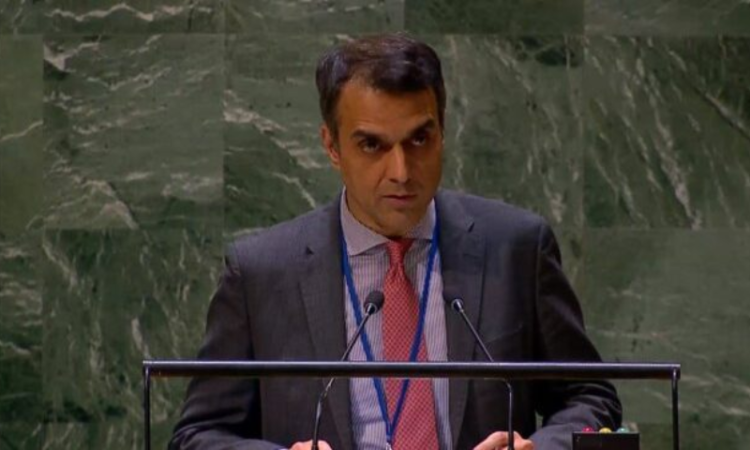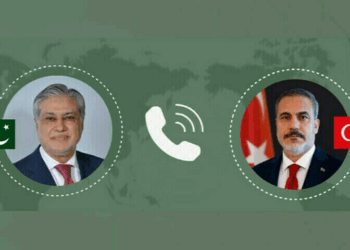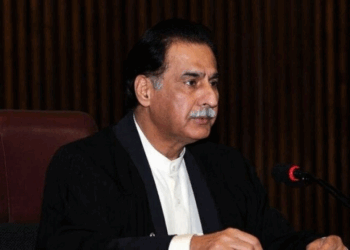United Nations, October 23, 2024-Pakistan has called on the international community to support the right of self-determination for the Kashmiri people through a UN-sponsored plebiscite, as outlined in UN Security Council resolutions, and to put an end to human rights violations in Indian-Occupied Jammu and Kashmir.
Addressing the UN General Assembly’s Third Committee, which deals with social, humanitarian, and cultural matters, Ambassador Usman Jadoon, Pakistan’s Deputy Permanent Representative, highlighted the grave situation in both Kashmir and Palestine. He described how the people of occupied Palestine continue to be denied basic human rights, including self-determination.
“The expansion of illegal settlements, the excessive use of force by Israeli occupation forces, and the blockade of Gaza are severe violations that demand immediate global attention,” Ambassador Jadoon stated during a debate on the “Promotion and Protection of Human Rights.” He called for an end to crimes against humanity in the ongoing conflict in Palestine.
On Kashmir, Ambassador Jadoon pointed to the use of excessive force, enforced disappearances, arbitrary detentions, and restrictions on freedom of expression, all of which have been documented in reports by the UN High Commissioner for Human Rights and various UN Human Rights Council mechanisms. These violations, he said, have worsened since India’s unilateral and illegal actions on August 5, 2019, which sought to impose its “final solution” on Jammu and Kashmir.
While underscoring the global focus on civil and political rights, Jadoon stressed that economic, social, and cultural rights remain under-prioritized. He emphasized the importance of addressing root causes of human rights violations, such as poverty, hunger, and inequality, which are critical for achieving the Sustainable Development Goals (SDGs).
“The unequal focus on civil and political rights hampers developing countries from achieving meaningful progress on human rights and meeting the SDGs,” he said.
Pakistan, he noted, fully supports the “Pact for the Future,” adopted by world leaders last month, which aims to renew multilateralism and reaffirm commitments to human rights, sustainable development, and global justice. “A stronger, more inclusive multilateral system is critical to realizing the human rights aspirations of all peoples,” Ambassador Jadoon concluded.








